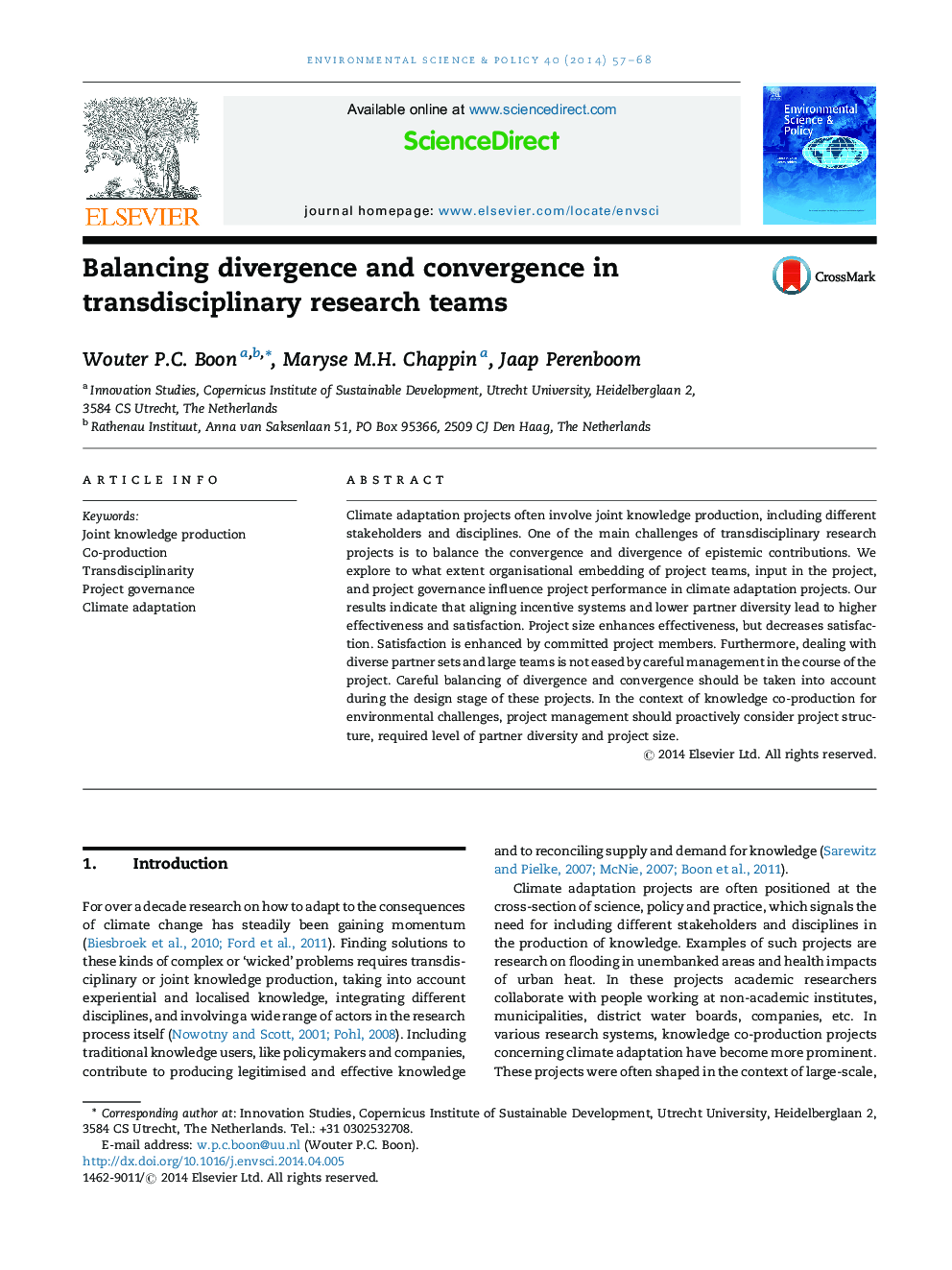| Article ID | Journal | Published Year | Pages | File Type |
|---|---|---|---|---|
| 7467754 | Environmental Science & Policy | 2014 | 12 Pages |
Abstract
Climate adaptation projects often involve joint knowledge production, including different stakeholders and disciplines. One of the main challenges of transdisciplinary research projects is to balance the convergence and divergence of epistemic contributions. We explore to what extent organisational embedding of project teams, input in the project, and project governance influence project performance in climate adaptation projects. Our results indicate that aligning incentive systems and lower partner diversity lead to higher effectiveness and satisfaction. Project size enhances effectiveness, but decreases satisfaction. Satisfaction is enhanced by committed project members. Furthermore, dealing with diverse partner sets and large teams is not eased by careful management in the course of the project. Careful balancing of divergence and convergence should be taken into account during the design stage of these projects. In the context of knowledge co-production for environmental challenges, project management should proactively consider project structure, required level of partner diversity and project size.
Keywords
Related Topics
Physical Sciences and Engineering
Energy
Renewable Energy, Sustainability and the Environment
Authors
Wouter P.C. Boon, Maryse M.H. Chappin, Jaap Perenboom,
